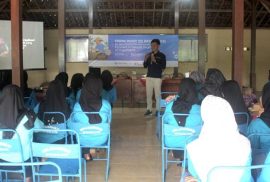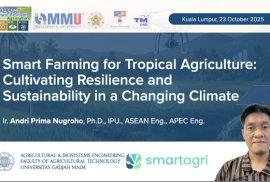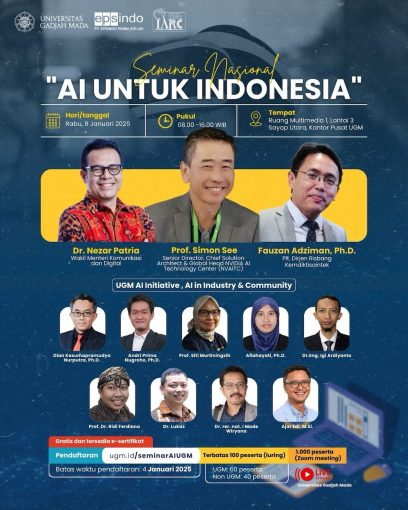
Yogyakarta, January 8, 2025 – Dr. Andri Prima Nugroho, Coordinator of the Smart Agriculture Research Center and a member of the Digital Transformation Bureau Task Force at Gadjah Mada University (UGM), participated as a speaker in the National Seminar “AI for Indonesia” held by UGM. The seminar showcased various AI innovations, and Dr. Andri presented the crucial role of artificial intelligence (AI) in enhancing food security, particularly in the agriculture sector.
In his presentation, which focused on the application of AI to improve agricultural productivity and food security, Dr. Andri provided a comprehensive understanding of food security as a condition where all individuals have physical and economic access to safe and nutritious food. He emphasized the importance of food security for health, economic stability, and social well-being, while identifying factors influencing it, such as population growth, climate change, poverty, distribution efficiency, and government policies.
Dr. Andri then outlined strategies to enhance food production and productivity through advanced agricultural technologies, sustainable farming practices, crop diversification, and the improvement of farmers’ knowledge and skills. He highlighted that these strategies are essential in addressing the challenges posed by climate change and ensuring that agricultural productivity meets the demands of a growing population.
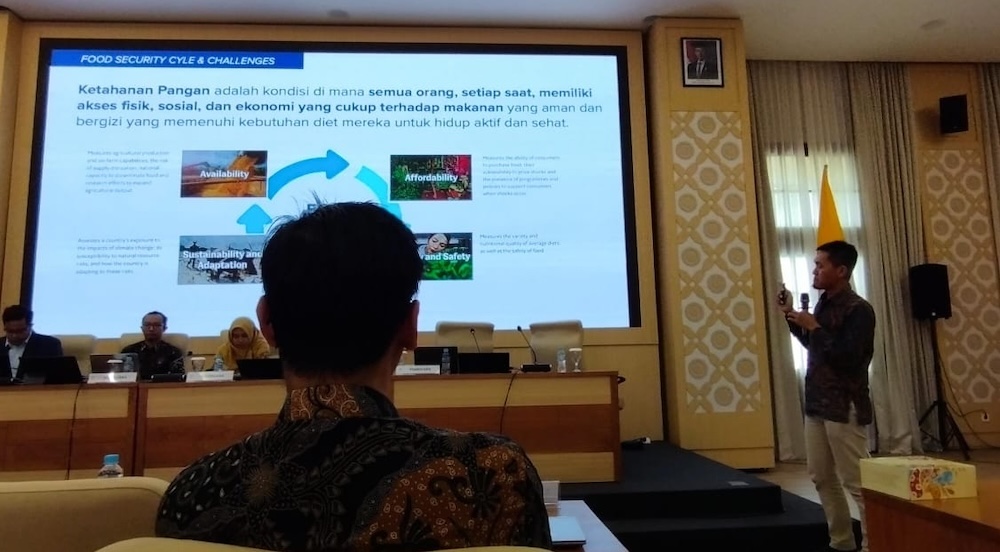
The core of Dr. Andri’s presentation was the role of AI in supporting food security. He explained how AI can be utilized to predict crop yields and weather conditions, optimize food supply chains, detect plant diseases earlier, and implement precision farming techniques to increase yields and reduce waste. By leveraging AI, farmers can make informed decisions that lead to more efficient resource use and better crop management.
Dr. Andri’s insights reflect UGM’s commitment to harnessing AI technology to tackle national food security challenges and inspire innovative and sustainable solutions. The integration of AI in agriculture not only enhances productivity but also contributes to the achievement of Sustainable Development Goals (SDGs), particularly those related to zero hunger and climate action.
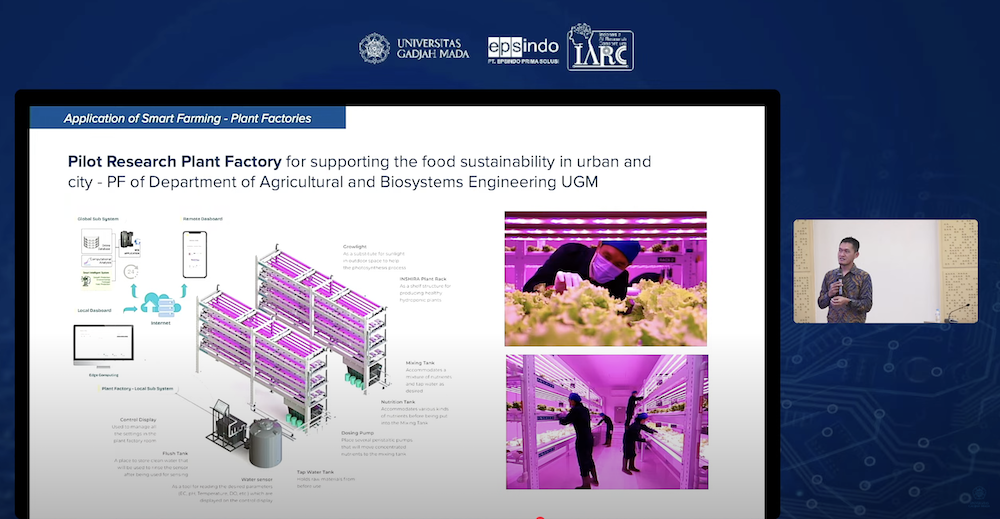
The seminar attracted a diverse audience, including researchers, policymakers, and industry stakeholders, all eager to learn about the potential of AI in transforming the agricultural landscape. Dr. Andri’s presentation sparked discussions on the future of agriculture in Indonesia and the role of technology in addressing pressing issues such as climate change and food scarcity.
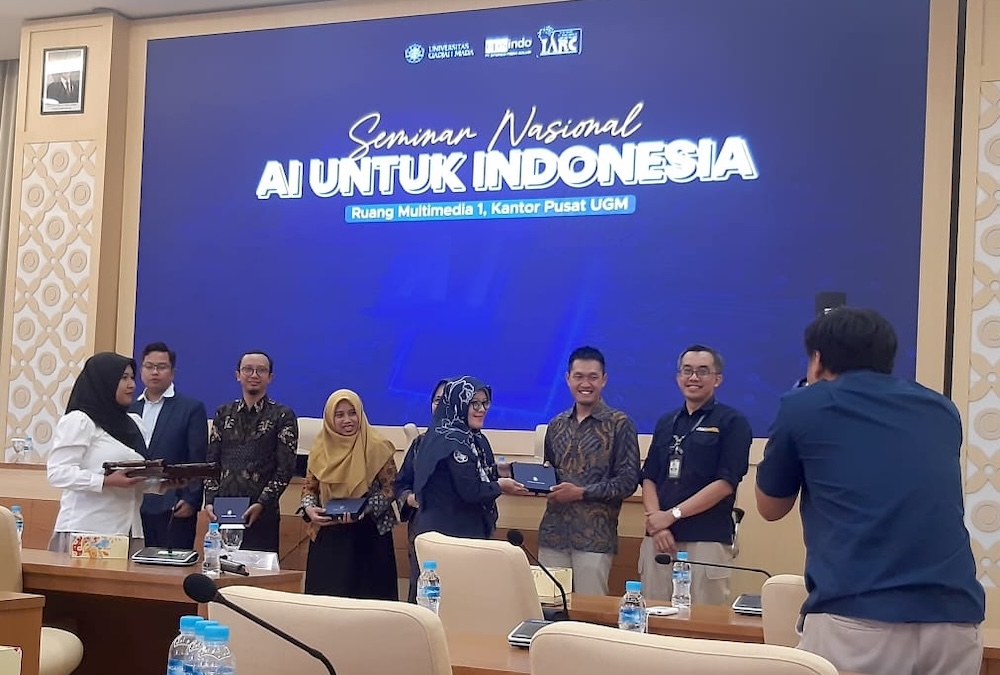
As the world faces increasing challenges related to climate change, the need for innovative solutions in agriculture becomes more critical. Dr. Andri’s work at the Smart Agriculture Research Center exemplifies the proactive approach needed to ensure that agricultural practices are resilient and sustainable in the face of environmental changes.
In conclusion, the seminar served as a platform for knowledge exchange and collaboration among various stakeholders in the agricultural sector. Dr. Andri’s contributions highlighted the importance of integrating AI into agricultural practices to enhance productivity and ensure food security for future generations.

